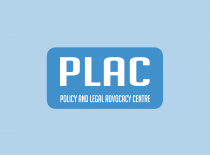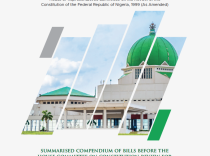The two Chambers of the National Assembly have approved the 2017-2019 MTEF and FSP document, which they are legally mandated to do before the passing of the National Budget. The Senate approved the report of its Joint Committees on Finance, Appropriations, and National Planning on the 2017-2019 Medium Term Expenditure Framework (MTEF) and Fiscal Strategy Paper (FSP) at its plenary session on Wednesday, January 18, 2017,. It would be recalled that President Muhammadu Buhari submitted the 2017-2019 MTEF and FSP to the Senate on Tuesday, October 4, 2016 who referred it to the aforementioned Committees on Wednesday, November 23, 2016 for further legislative input.
Presenting the report, Sen. John Enoh (PDP: Cross River Central) stated that the review of the 2017-2019 MTEF and FSP by the Joint Committees was made in collaboration with the National Assembly Budget and Research Office (NABRO) and the National Institute for Legislative Studies (NILS). He also mentioned that in addition to this, an interactive session with various Ministries,Department and Agencies (MDAs) such as the Ministries of Finance, Budget and Planning, Mines and Steel, the Nigerian National Petroleum Corporation (NNPC), the Nigerian Customs Service and the Federal Inland Revenue Service (FIRS) was conducted to enable the Committees formulate its proposals.
Following this, Sen. Enoh gave the Joint Committee’s recommendations on the 2017 -2019 MTEF document as follows:
- The adoption of an oil output level of 2.2 million barrels per day (mbpd) as proposed by the Executive for the 2017 Budget.
- The adoption of $44.5 per barrel as oil benchmark price for the 2017 Budget.
- The adoption of N305/US dollar as proposed by the Executive for the 2017 Budget. However, with a proviso that the Central Bank of Nigeria (CBN) initiate measures that will close the gap between the parallel market and the official exchange rate.
- The adoption of the projected N5.122trillion for non-oil revenue in 2017. In addition, that revenue generating agencies should intensify their revenue collection drive in order to boost the non-oil components of the revenue.
- The adoption of N807.57billion for the Federal Government Independent Revenue for 2017 and further review of the legal framework of relevant MDAs.
- The adoption of the 2017 borrowings but on a project-tied basis. In other words, in borrowing more, the Government must remain focused and ensure it is used to fund critical projects that will increase productivity and also contribute to financing such debt.
- The constant oversighting of MDAs by relevant committees of the National Assembly to ensure effective implementation of programs.
- That the Federal Government should implement drastic measures to achieve self-sufficiency and become an exporter of certain agricultural and mining products.
Following the presentation, the Senate approved the recommendations therein but expressed concern over the exchange rate adopted by the Federal Government which it described exchange as “unrealistic” considering the current economic uncertainties.
On the same day, the House of Representatives also considered and approved same recommendations presented by its Committees on Finance, Appropriations, National Planning and Economic Development, Legislative Budget and Research, and Aids, Loans and Debt Management at its plenary.





